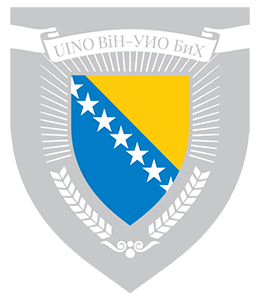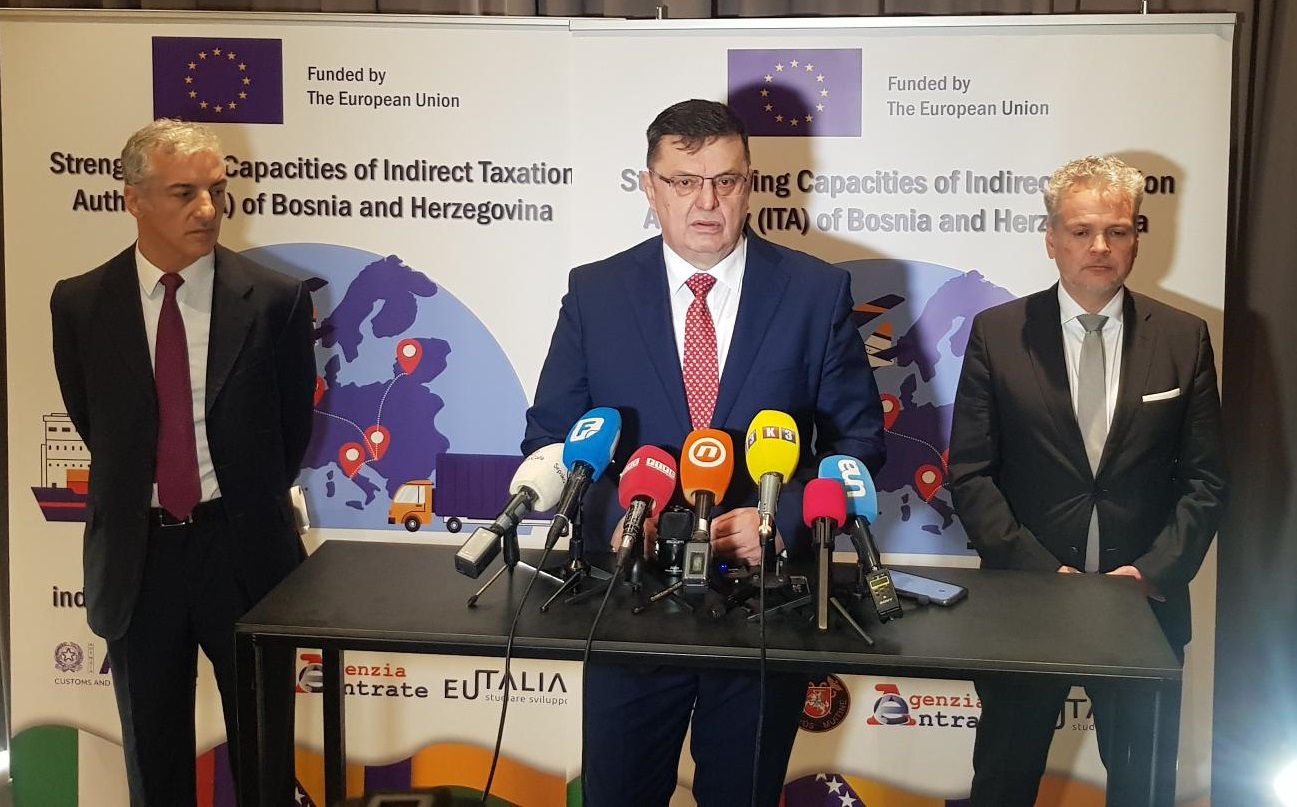The Head of the EU Delegation and the EU Special Representative to BiH, Ambassador Johann Sattler, and the Director of the Indirect Taxation Authority to BiH, Mr Zoran Tegeltija, announced today in Banja Luka the beginning of another significant project to strengthen the efficiency and capacity of the Indirect Taxation Authority (ITA), through the implementation of best practices and legislation on indirect taxation in accordance with European Union practices.
The EU continuously supports BiH on its path to accession through various instruments. Twinning projects offer invaluable opportunities for the exchange of best practices and direct cooperation with EU member states. This project worth one million euros will involve more than 50 experts from member countries and will last until September 2025.
Ambassador Sattler emphasized that the harmonization of customs and tax legislation with that of the EU is of the greatest importance for BiH. We have supported the Indirect Taxation Authority since the beginning, for more than twenty years, and we will continue to do so. Support usually comes through twinning projects that transfer best practices from member countries to countries that want to become EU members. Basically, it is about the transfer of EU legislation to those who want to join the EU. It is a big task, 100,000 pieces of legislation that you have to transpose into your legislation, and a key part is related to customs and taxes.
The primary goal of this project is the harmonisation of the ITA working procedures with EU standards, which will be done through four components: harmonization in the area of customs and taxation, support to the Department for risk analysis and management of the ITA, support to the Internal Audit Department and through support to the expert team in the implementation of the action plan coordinating body for financial activities.
The ITA has implemented 14 projects in seven years and it is a proof that there is trust between the EU and the ITA in BiH. This project is not financially demanding, we implement much bigger projects with the European Union. What we expect is that through cooperation with experts from EU countries, this time from Italy and Lithuania, we will improve our legislation, but also improve certain practices that are very important for us. The result of this expectation is that we will have better tax and customs regulations, said the ITA Director, Mr Zoran Tegeltija.
The expected results of the project are the drafting of a proposal for the Decision on the implementation of the new Law on Customs Policy of BiH and the updating or drafting of by-laws and instructions on customs, excise and VAT procedures. Other activities foreseen by the project are the adoption of compliance risk management procedures, training of internal auditors and training of customs officers on cash control.
The project is led by the Italian Agency for Customs and Monopolies, the Customs Department of Lithuania, the Italian Revenue Agency and EUTALIA, the authorized body of the EU.

